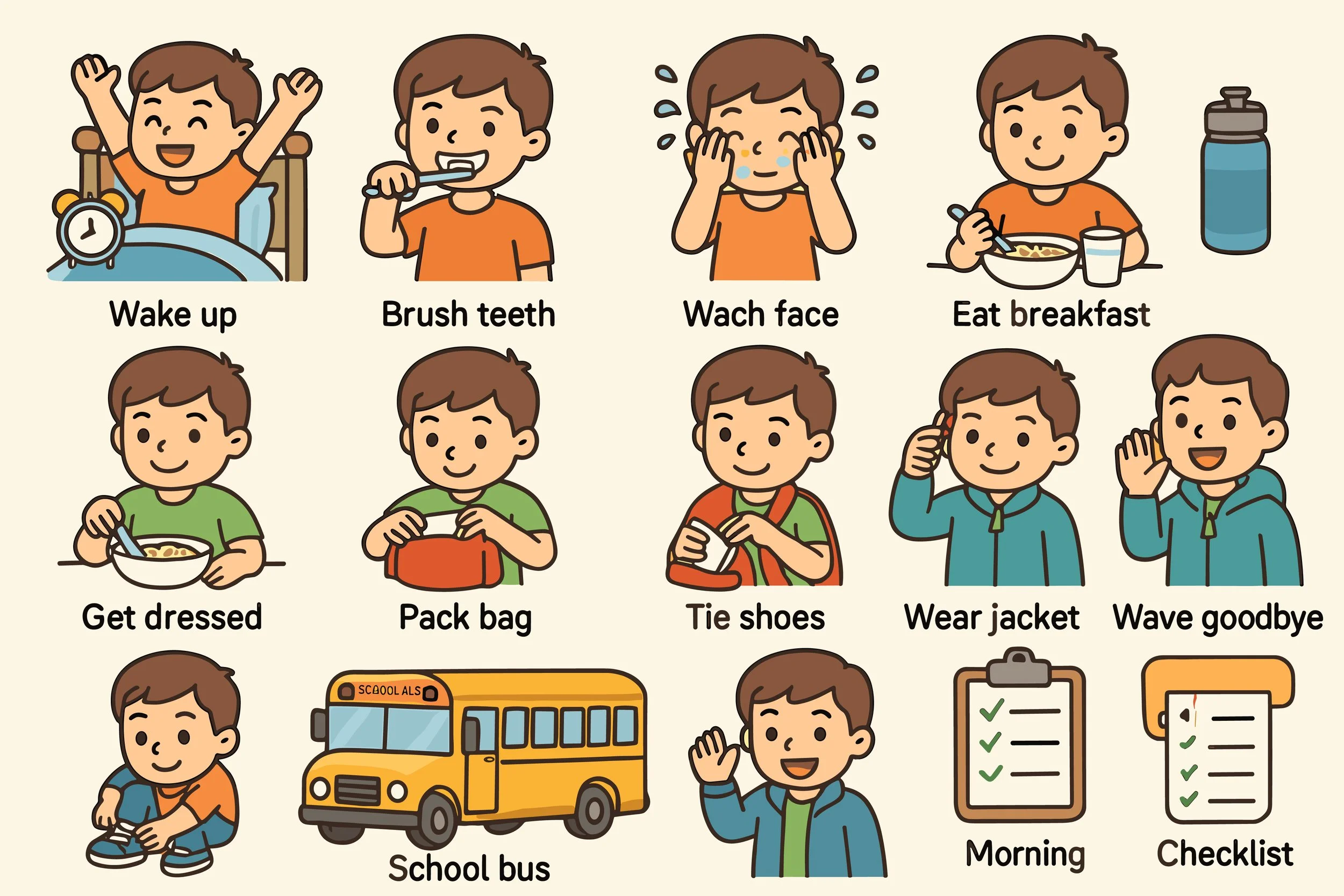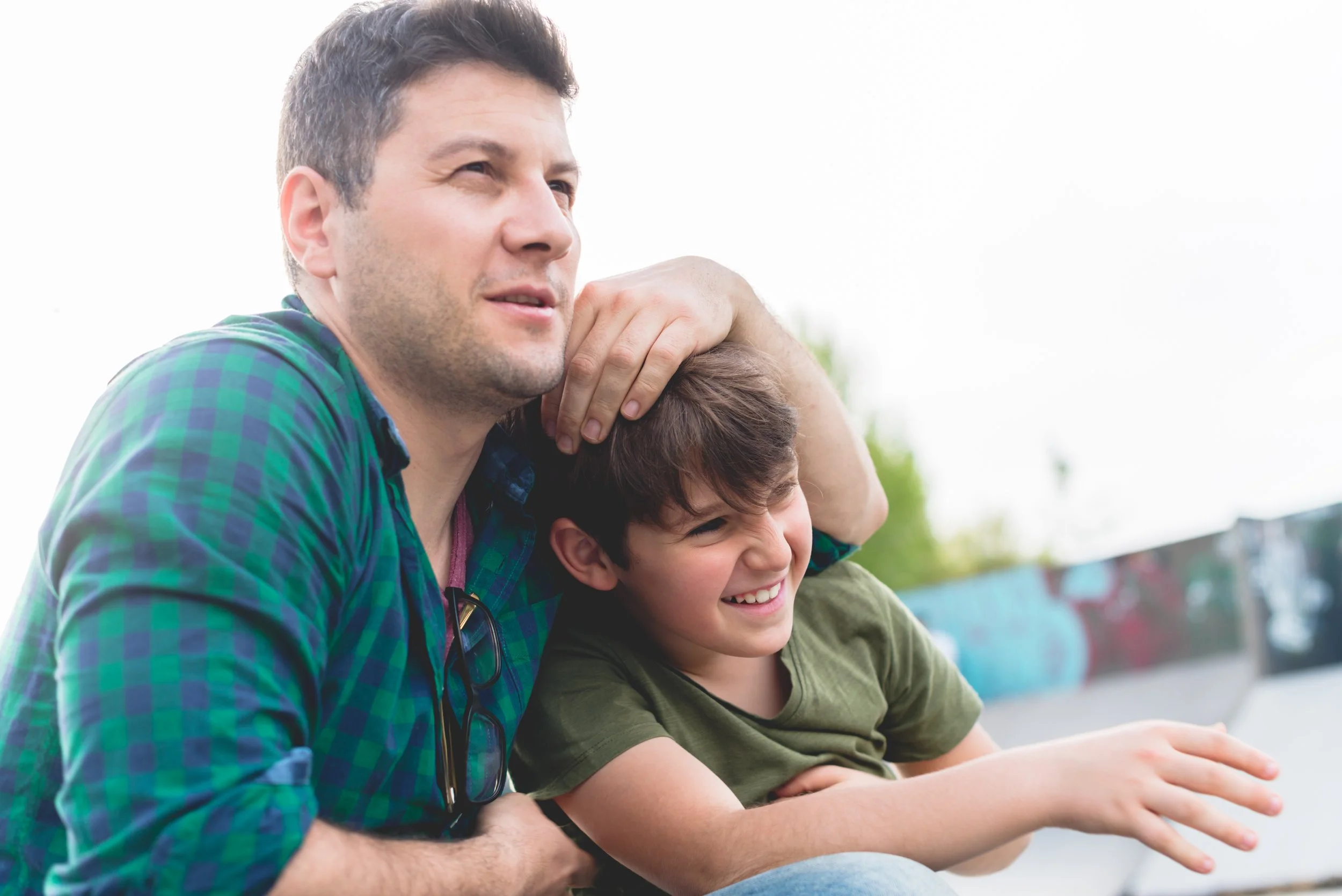Why Do Kids Lie? A Psychologist’s Perspective for Parents
Few things push a parent’s buttons like catching their child in a lie—especially an obvious one. Picture it: your child stands before you, face covered in chocolate cake, insisting they didn’t eat dessert. It’s exasperating, even maddening.
But why is lying so triggering for us as adults?
At its core, lying disrupts trust. When someone lies to us, especially someone close like our child, it creates a disconnect. We begin to question other things they say, their motives, and even the relationship itself.
For many parents, lying feels personal and disrespectful—it’s not just about the behavior but what it implies about the bond.
In my work with families, I often hear parents describe lying as sneaky, manipulative, or even villainous—as if their child is auditioning for a role in a Disney movie. Lying gets wrapped up in notions of morality and respect. But here’s the truth: most of the time, children lie for very simple, understandable reasons.
Most Kids Lie to Avoid Consequences or Discomfort
Children typically lie to avoid punishment or an uncomfortable conversation.
That’s it. Not because they’re manipulative or evil, but because they’re human—and humans, even adults, do this all the time. Think about it: how often have you told a white lie to avoid hurting someone's feelings after a bad haircut or awkward moment?
We expect our kids to be completely honest, even when it costs them. But we often model the opposite.
The “Leave It to Beaver” Fantasy
Many parents hold an idealized image of how their child should behave—like something out of a 1950s sitcom. For example, if one sibling wrongs the other, parents expect a confession that sounds like:
“Gee, Mom and Dad, I’m sorry I put salt in Wally’s ice cream. I was just really mad that he took my glove without asking. I’ll never do it again.”
But that’s rarely reality. Kids (and adults) don’t often confess their misdeeds in clean, reflective monologues.
Expecting this kind of response isn’t realistic and often sets everyone up for disappointment.
Not All Lies Are the Same
Some kids lie in response to specific situations—like being caught with chocolate on their face. Others lie in more imaginative or attention-seeking ways. I once heard of a 10-year-old who told elaborate stories about a fictional boyfriend and secret after-school meetups—even though she was picked up immediately every day and had no boyfriend.
These kinds of lies aren’t about avoiding consequences. They’re often about wanting to feel important, impressive, or connected.
Sometimes, kids lie because they believe their truth isn’t interesting or enough. They may not even fully understand why they’re doing it.
Focus on Connection, not Confrontation
If your child insists, they brushed their teeth but their toothbrush is dry and the bathroom trip that lasted 30 seconds, you can calmly say:
“I don’t think your teeth are brushed. Let's go back and do it together.”
No need to argue or accuse. Just guide them back with warmth and support. Redirect, reset, and move on. Arguing only fuels the behavior you’re trying to avoid.
What if You're Confident They Lied?
If you’re 95% sure your child did something they should or should not have done—ate the cake, skipped brushing, didn’t do their homework—don’t ask a question that invites a lie. Asking them questions you already know the answer to can make it harder for them to be honest:
Instead of,
“Did you finish your homework?”
say:
“I see that did not complete your homework before dinner. Because of that, after dinner, we will work on your homework, instead of watching television.”
This approach shifts the focus away from trying to get a confession and instead addresses the behavior directly. This way, you're focusing on the behavior without making your child feel trapped or shamed.
If the child still lies in response—despite the evidence—don’t engage in a power struggle. Simply return to what you know is true:
“I know the toothbrush is dry and 30 seconds isn’t long enough to brush your teeth and wash your face. So, I’m going to ask you to go do those things again now.”
Then follow up with structure:
“Next time, I’ll come with you so I know it gets done.”
This kind of calm, matter-of-fact approach does several things:
Avoids turning small to medium missteps into big emotional battles.
It prevents a lie from turning into a long debate or punishment loop.
It shows your child that lying isn’t effective—and honesty, even about mistakes, is easier.
Keeps your connection with your child strong
Use Environmental Solutions Over Behavioral Ones
Instead of depending on your child’s memory, willpower, or constant verbal reminders, try changing the environment to support follow-through and honesty. When the structure around them encourages success, kids don’t need to rely on self-discipline alone—they’re simply set up to thrive.
Here’s how to make it work:
· Supervise routines with care, not control. If brushing teeth has become a struggle or trust is shaky, stay nearby. You can say,
“I’ll hang out in the bathroom while you brush. Let me know if you want help with the timer.”
This shows you’re a partner, not a watchdog.
Using visual checklists for morning or bedtime routines can create built-in habits: A simple chart with pictures or words:
🪥 Brush teeth
🧼 Wash face
👕 Put on pajamas
Let your child check off each step as they go. It gives them a sense of control and makes expectations clear.
Prep the space to guide behavior.
If the toothbrush is buried under clutter or toothpaste is hard to open, they’re less likely to follow through. Keep supplies within easy reach and consider a small mirror chart or reward sticker system for younger kids.
Stick to predictable rhythms. Routines like “toothbrush after bath” or “snack after homework” reduce the chance for power struggles because your child isn’t constantly re-negotiating or guessing what comes next.
Overtime, if you as the parent are consistent with your support and partnership in the routine, actual amount you have to supervise them will be reduced.
Creating clear routines reduces ambiguity so lying is much less an option.
Routines and environmental solutions are powerful because they don’t require perfect consistency from you or the child. They simply reduce opportunities to lie altogether.
Timing Is Everything: Talk During Neutral Moments
One of the most powerful ways to nurture honesty isn’t in the heat of the moment—it’s during the quiet, ordinary times when everyone feels safe and connected – before the lie ever happens.
Think: riding in the car, walking the dog, or tidying up together.
Use those times to talk about what matters to you and your family – your values. These low-pressure moments are perfect for talking about truthfulness, trust, and making things right after a mistake. You’re not reacting to a lie—you’re planting seeds ahead of time.
For example:
“Imagine you and I plan to see a movie. We talk about it, pick our snacks, and get excited. But then I don’t show up. No call. No text. Nothing. Would you trust me to make plans again?”
Or
“It’s okay to make mistakes—we all do. What matters most is being honest so we can figure it out together.”
Or
“Telling the truth might feel hard sometimes, but it helps people feel safe and close to us.”
Let your child connect the dots. Stories and simple statements like these help them understand why trust matters. These gentle conversations help your child understand that honesty isn’t just a rule—it’s part of a trusting, respectful relationship.
Final Thoughts: Set Realistic Expectations
The human brain isn’t fully developed until age 23–25. Expecting a 6-, 10-, or even 15-year-old to navigate honesty perfectly is not realistic.
When we work with developing brains, we must adjust our expectations to meet reality and have a more positive experience for ourselves and our kids.
At MindView Psychology, we help families understand the “why” behind a child’s behavior through comprehensive psychological assessment. Lying can be developmentally typical—but in some cases, it may be linked to underlying challenges like ADHD, anxiety, or difficulties with impulse control.
By gaining insight into how your child’s brain works, parents can respond with curiosity, structure, and support, rather than shame or frustration. With the right strategies and understanding, even tricky behaviors like lying can become opportunities for growth and connection—not conflict.








